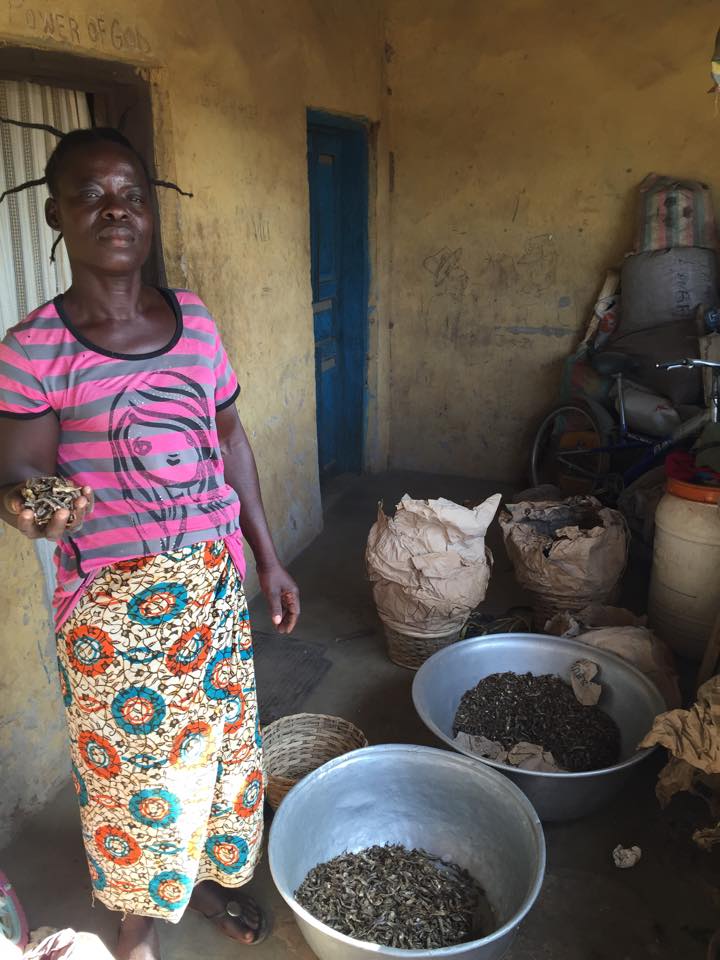Lamissi started trading in small dried fish known as “keta boys”, onions and palm oil in October last year with the help of a small business grant from ATE. Before this she had only made small amounts of money from irregular work in chop bars where she would wash bowls and pound fufu or help to make and sell banku or kenkey. As a widow, denied any inheritance or financial or material support by her late husband’s family, Lamissi struggled to raise her three sons on her own and battled to find the money for the rent and food. The little food she got, she gave to her children, but often they would have to go to eat elsewhere. In this dire situation she felt she had no option but to leave the two older boys to fend for themselves and head South to Kumasi with the youngest strapped to her back in the hope of finding a way to make some money. It was a hard decision for Lamissi to make but migration to big towns in the South, leaving children behind, is not one which is wholly unfamiliar to people in Ghana who find themselves living in extreme poverty. Lamissi was away from her two older sons for almost a year. When she returned, Habib, ATE’s Operations Manager, strongly advocated for her to stay in Lawra with her children, who by that time had dropped out of school and had lost an unhealthy amount of weight. With Habib’s help she developed a plan to start a small business, was supported to complete an application form and was successfully presented with an ATE grant.
 Lamissi now concentrates her business on selling palm oil as when the market is slow the onions would spoil, but the palm oil really sells. She has tried and tested, and adapted her buying and selling strategies, under-cuts her competition on pricing, and has kept her capital intact with savings in the bank and in a microcredit scheme. She explains that this has taken a great amount of discipline, but “this is where my hope lies. If the business fails I have nowhere to turn. I would have to go back to my old life”.
Lamissi now concentrates her business on selling palm oil as when the market is slow the onions would spoil, but the palm oil really sells. She has tried and tested, and adapted her buying and selling strategies, under-cuts her competition on pricing, and has kept her capital intact with savings in the bank and in a microcredit scheme. She explains that this has taken a great amount of discipline, but “this is where my hope lies. If the business fails I have nowhere to turn. I would have to go back to my old life”.
Lamissi says she has seen a great improvement in her life. She now has enough income to pay her rent, her bills and to support her two youngest sons, Kaarkpe and Yangnikpeng, whilst the eldest, Kanyiri lives with Habib as he completes his schooling. “Since receiving the grant I have not had to borrow money or beg for food like before. I am relieved. I have been rescued and want to express my gratitude to those who helped, for their guidance and support”.